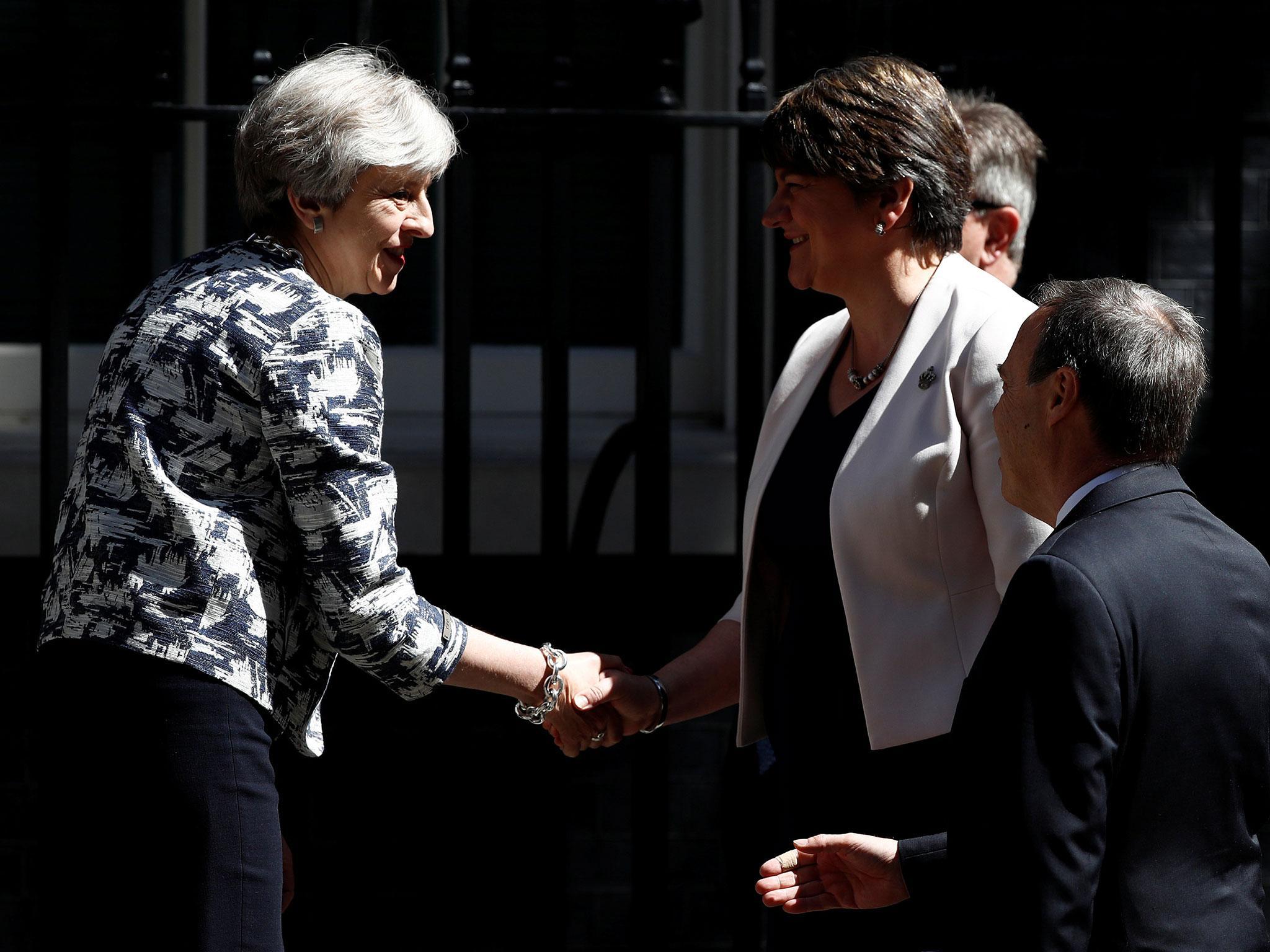DUP-Tory deal: Release of £1bn for Northern Ireland must be approved by Commons vote, admits Government
Treasury says it needs 'appropriate parliamentary authorisation' to hand over the funds - but 'no timetable has been set'

Your support helps us to tell the story
From reproductive rights to climate change to Big Tech, The Independent is on the ground when the story is developing. Whether it's investigating the financials of Elon Musk's pro-Trump PAC or producing our latest documentary, 'The A Word', which shines a light on the American women fighting for reproductive rights, we know how important it is to parse out the facts from the messaging.
At such a critical moment in US history, we need reporters on the ground. Your donation allows us to keep sending journalists to speak to both sides of the story.
The Independent is trusted by Americans across the entire political spectrum. And unlike many other quality news outlets, we choose not to lock Americans out of our reporting and analysis with paywalls. We believe quality journalism should be available to everyone, paid for by those who can afford it.
Your support makes all the difference.Parliament must approve the release of the £1bn pledged in the “cash-for-votes” deal for the Democratic Unionist Party to prop up Theresa May in power – but “no timetable has been set”.
The Government has conceded it needs the approval before handing over the money controversially promised to Northern Ireland to secure the backing of the 10 DUP MPs on key votes.
However, it said no date has been agreed for securing that go-ahead, which means the cash has not yet been released.
The twist emerged after Gina Miller, the campaigner who forced the Government to secure Parliament’s approval to start Brexit, challenged the legal basis for handing over the £1bn.
In a letter, the Treasury solicitor said it “will have appropriate parliamentary authorisation”, but added: “No timetable has been set for the making of such payments.”
Ms Miller said the Prime Minister should have made clear, when the agreement was signed with the DUP in June, that a vote in Parliament would be necessary.
“It beggars belief that, neither at the time the Government sealed its dubious deal with the DUP in exchange for their votes in the Commons, nor at any point since, has the Government made it clear that the £1bn of taxpayers’ money for Northern Ireland could only be handed over following Parliamentary approval,” she told The Guardian.
The concession came in a reply to a legal letter from Ms Miller and the Independent Workers Union of Great Britain (IWGB).
Some Conservative MPs have voiced their unease about the DUP deal and John Major warned of a backlash in the rest of the UK, which was still suffering the effects of harsh Government cuts.
Only last week, Jeremy Corbyn pressed the bruise when Ms May accused him of constantly wanting higher public spending, saying: “The Prime Minister had no problems finding £1bn to please the DUP.”
Dr Jason Moyer-Lee, general secretary of the IWGB, said: “Many IWGB members’ jobs depend on public money, like foster care workers and low-paid outsourced university staff.
“They are routinely told that there’s no money available to improve their pay, holidays and other terms and conditions they demand.
“Yet, when it comes to keeping themselves in power, this government’s fiscal discipline quickly dissipates.
“There’s undoubtedly a need for increased social spending throughout the UK but this should be on a basis of fairness; not self-serving party politics.”
There is little prospect of any Tory MPs rebelling in vote on delivering the £1bn, given its release is essential for the survival of their government.
However, any parliamentary debate about the extra funding required would allow Labour to exploit the Government’s embarrassment.
In the letter, the solicitor Jonathan Jones said the Government intends to use “long-established procedures, under which central government requests the grant of money by the House of Commons” in order to pay out the funds.
Separately, the DUP deal is being challenged in a crowdfunded legal case by Green party activist Ciaran McClean, that claims it breaks the promise of impartiality in the Good Friday agreement and breaches the Bribery Act.
The high court has notified both sides’ legal teams that, because of the urgency of the claim, it should be heard in October, at the beginning of the new legal term. It is likely to begin on 26 October.
Join our commenting forum
Join thought-provoking conversations, follow other Independent readers and see their replies
Comments